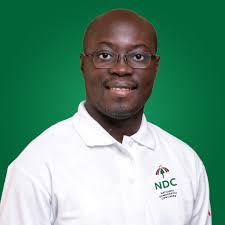Ato Forson’s 7 Key Pillars for Economic Reform

Dr. Cassiel Ato Forson Presents Comprehensive Seven-Point Economic Recovery Strategy
Finance Minister, Dr. Cassiel Ato Forson, has unveiled a far-reaching seven-point economic recovery strategy aimed at revitalizing Ghana’s economy and steering it toward sustainable growth. Speaking at the National Economic Dialogue, Dr. Forson shared the administration’s vision for implementing significant reforms while ensuring the protection of crucial social programs that support vulnerable populations.
1. Strengthening Domestic Revenue Collection
The first pillar of the recovery plan centers on improving Ghana’s domestic revenue collection. Dr. Forson emphasized the need for a tax system that is fair, straightforward, and efficient. He pointed out that the current tax system disproportionately burdens the working class, while allowing loopholes for wealthier individuals to avoid paying their fair share. His proposed reforms aim to restructure the tax system to make it more equitable, broaden the revenue base, and ensure that the system benefits all sectors of society fairly.
2. Qualitative Fiscal Consolidation
The second pillar focuses on “qualitative fiscal consolidation.” Unlike previous strategies that pursued fiscal stability through austerity measures, this approach seeks to reduce government spending while protecting critical sectors that drive growth and support social welfare programs. Dr. Forson explained that this method would help Ghana avoid the pitfalls of earlier fiscal strategies that compromised economic growth in the name of reducing deficits. By protecting vital areas such as education, healthcare, and infrastructure, the government intends to balance fiscal responsibility with continued economic development.
3. Strict Adherence to Public Financial Management Regulations
The third pillar stresses the importance of adhering to strong public financial management (PFM) regulations. Dr. Forson committed to implementing rigorous controls to ensure the proper allocation and use of public funds. He stressed the need for enhanced transparency and accountability, with every taxpayer cedi carefully tracked to ensure it delivers measurable results. His plan includes increasing oversight of government procurement processes and taking stronger measures against wasteful spending. The goal is to maximize the impact of government expenditures and prevent financial mismanagement.
4. Enhancing Public Spending Efficiency
Improving the efficiency of public spending constitutes the fourth pillar. Dr. Forson acknowledged criticisms regarding the effectiveness of current social programs, citing concerns about misallocated resources, administrative inefficiencies, and poor targeting. The new strategy aims to streamline delivery mechanisms so that resources are more effectively directed to the populations who need them most. Special attention will be given to ensuring that social initiatives, including welfare programs and infrastructure projects, are more effectively managed, reducing waste and improving outcomes.
5. Phasing Out Energy Sector Subsidies
The fifth pillar, which is expected to spark considerable debate, addresses the gradual removal of energy sector subsidies. Dr. Forson described these subsidies as costly, regressive, and ineffective, primarily benefiting wealthier segments of society rather than the poor. While acknowledging the short-term challenges such a move could pose, he emphasized that the funds currently spent on energy subsidies would be redirected into more targeted social programs aimed at benefiting the country’s most vulnerable citizens. This shift aims to create a more equitable system while also ensuring that government resources are used more effectively.
6. Reforming State-Owned Enterprises
The sixth pillar involves significant reform of Ghana’s state-owned enterprises (SOEs), particularly those like Cocobod and the Electricity Company of Ghana (ECG), which have accumulated large liabilities and contributed to the government’s fiscal challenges. Dr. Forson highlighted the need for these entities to either operate profitably or at least break even, rather than continuing to drain public funds. He suggested that some SOEs could be restructured, reorganized, or even partially privatized to improve their performance and reduce their financial burden on the government.
7. Strengthening Ghana’s Fiscal Framework
The final pillar aims to enhance Ghana’s fiscal framework by introducing new fiscal rules and strengthening automatic stabilizers. Dr. Forson pointed out that excessive earmarking of revenues and rigid budget rules have limited the government’s ability to respond flexibly to economic changes. By improving the fiscal framework, the government will be better equipped to adapt to future economic fluctuations and emergencies, ensuring greater financial resilience.
Addressing Ghana’s Economic Challenges
Dr. Ishmael Yamson, Chairman of the National Economic Dialogue Planning Committee, opened the discussion by stating that Ghana’s current economic difficulties are largely self-inflicted. He stressed that the country’s leaders and citizens must work together to address the challenges and set a new course for the future. Although he acknowledged that resistance to change is likely, he expressed optimism that with committed leadership and national collaboration, Ghana can overcome its economic obstacles.
Dr. Yamson also expressed concern over the growing disillusionment among Ghana’s youth, noting that many young people are leaving the country in search of opportunities elsewhere. He attributed this trend to years of poor governance, corruption, and economic instability, which have led to high unemployment and declining industries. Dr. Yamson concluded by warning that failing to act now could have severe consequences for the country’s future, urging immediate action to reset the economy and restore public confidence.







